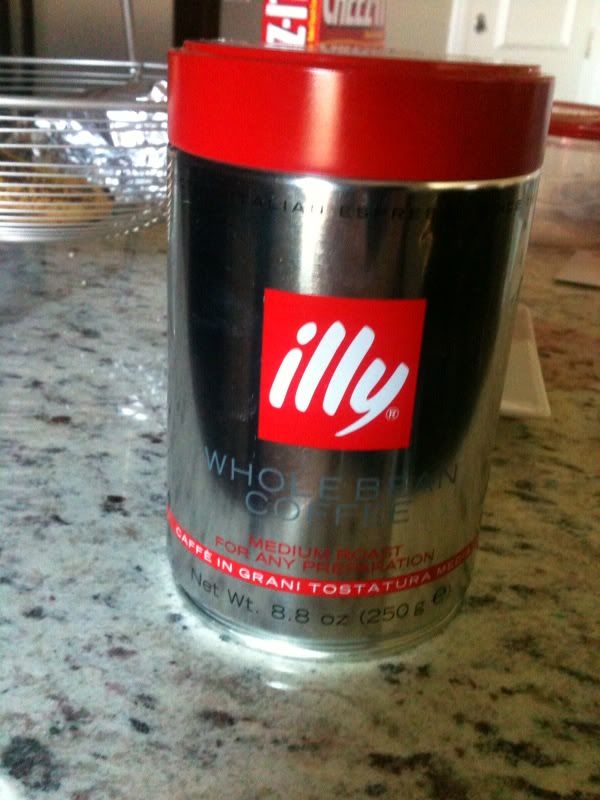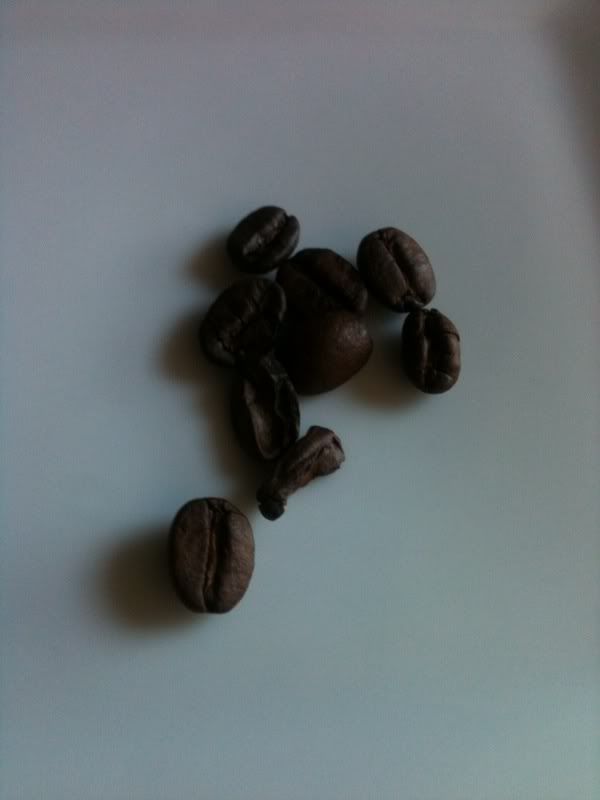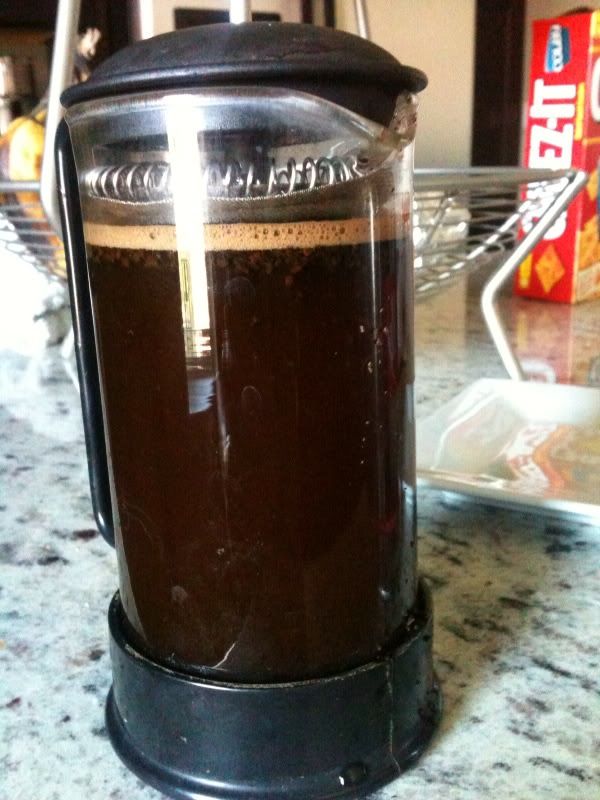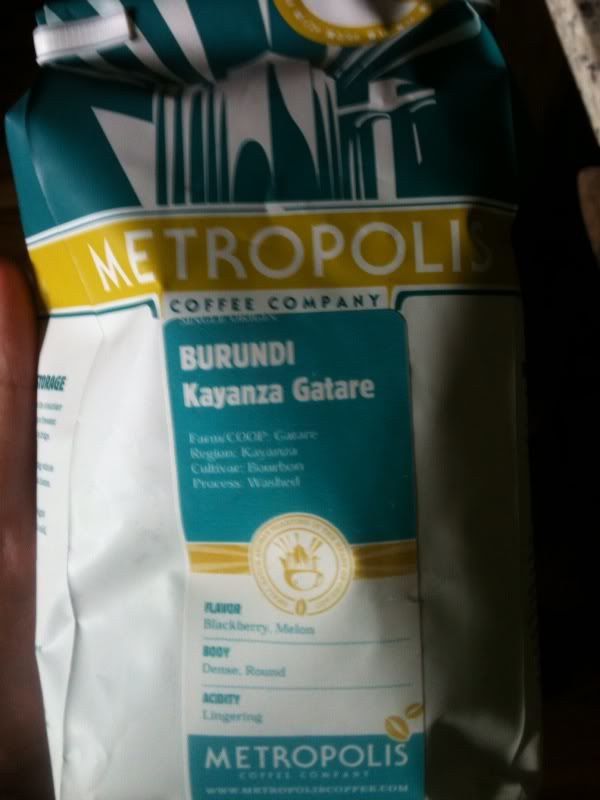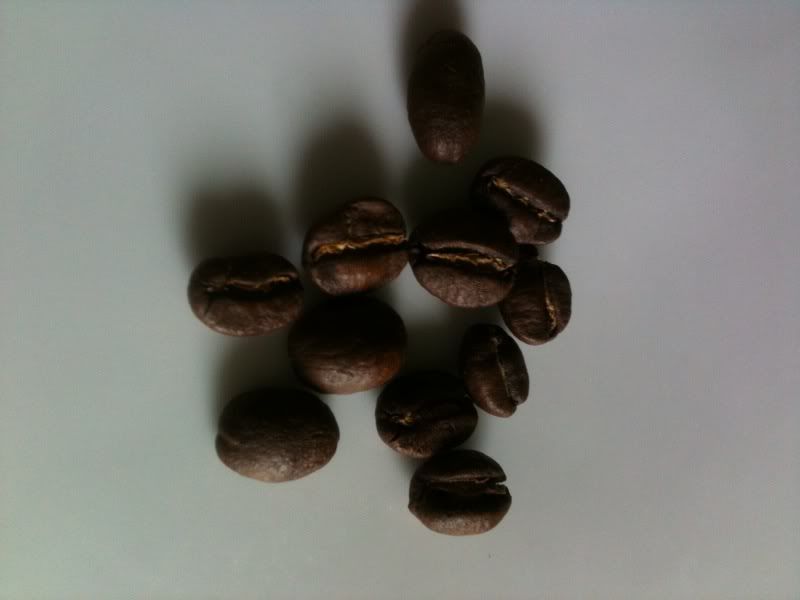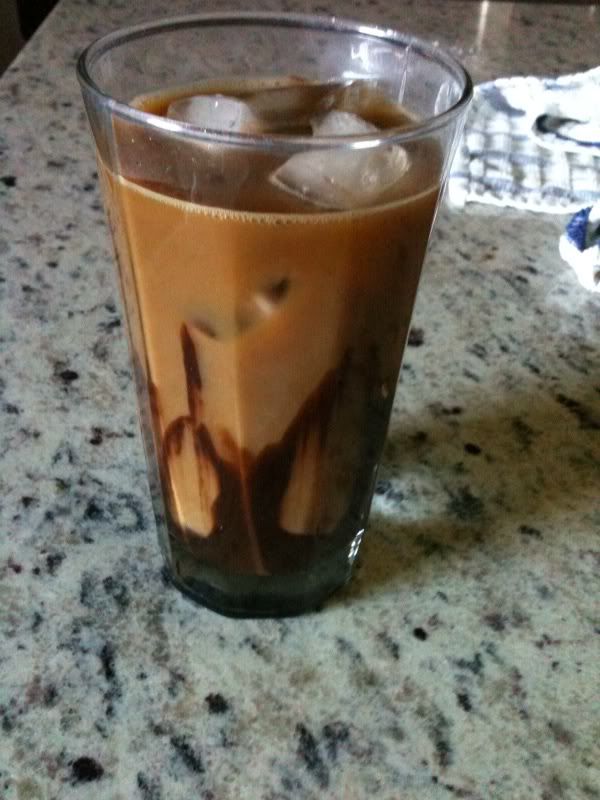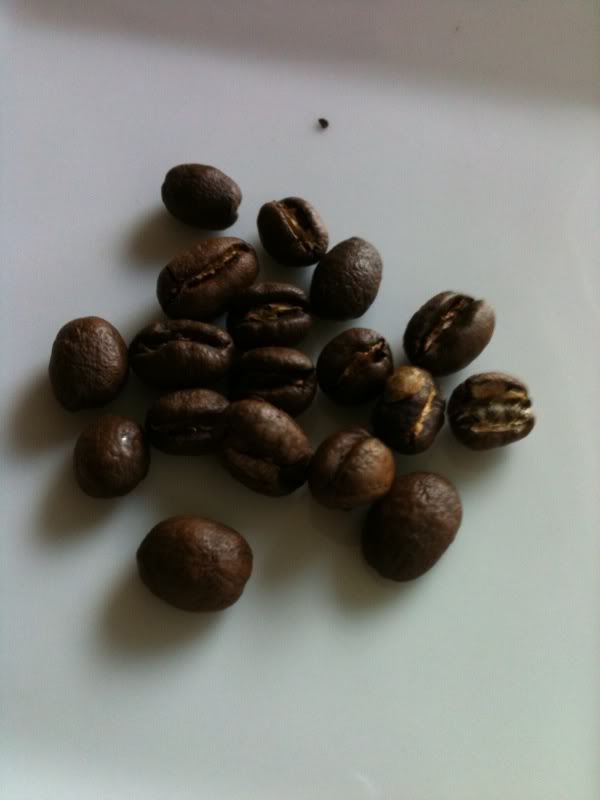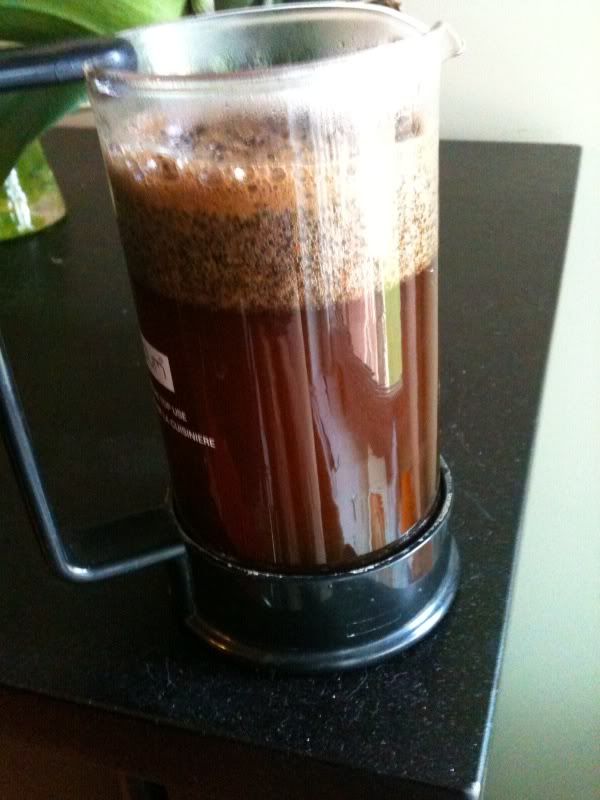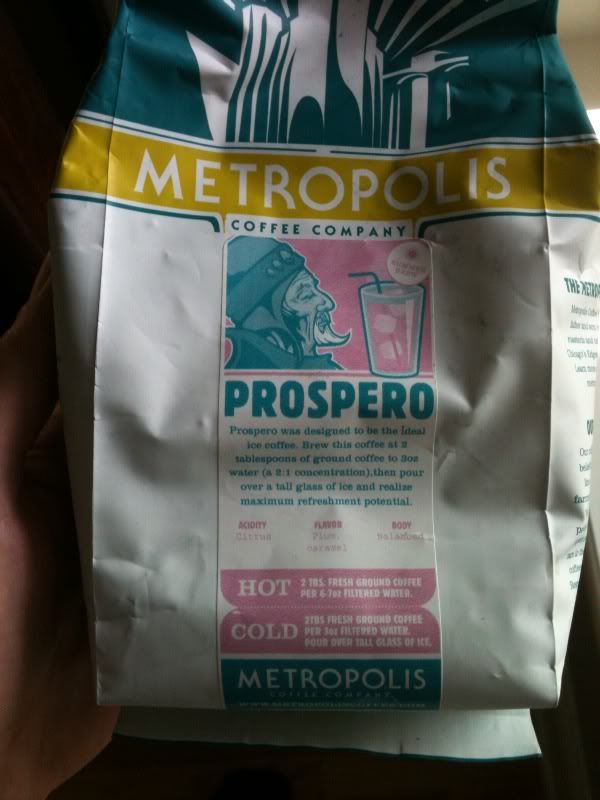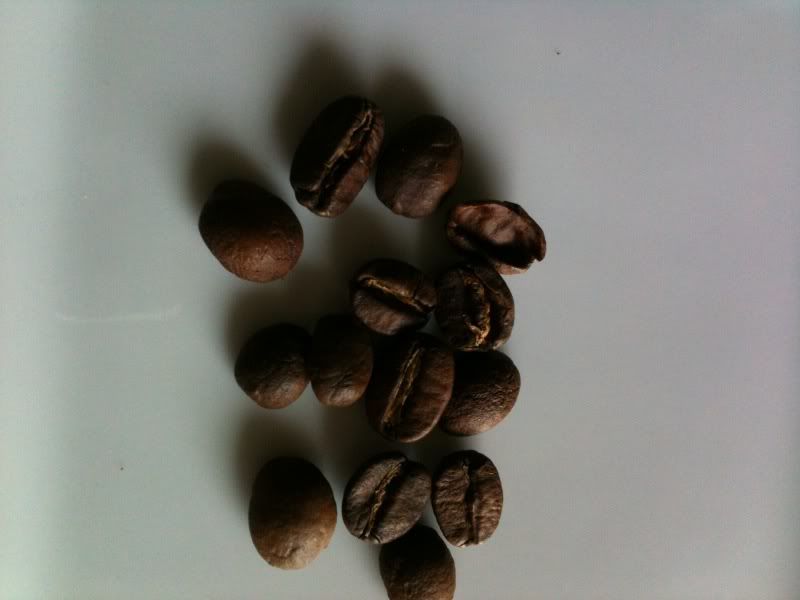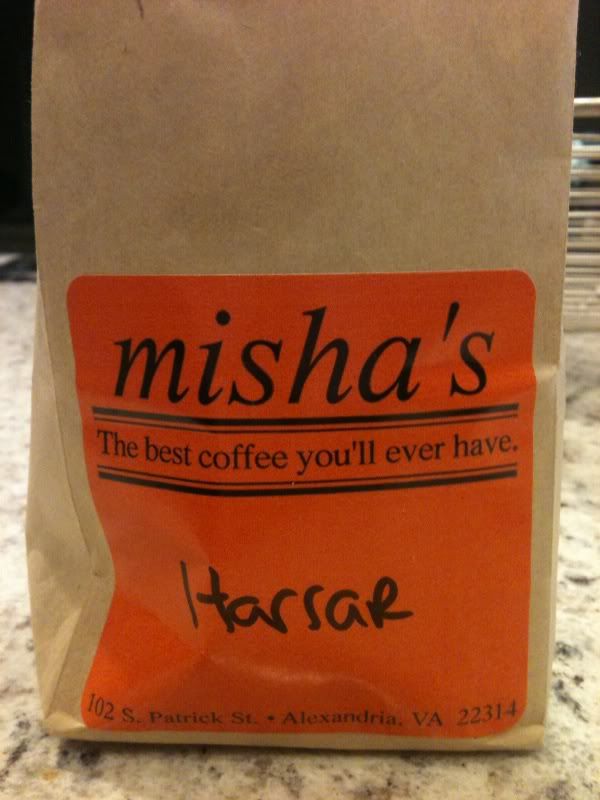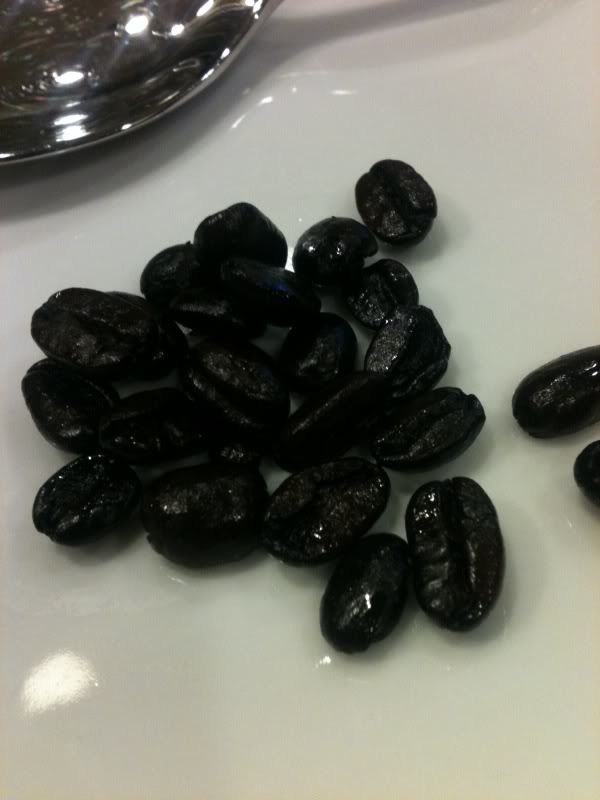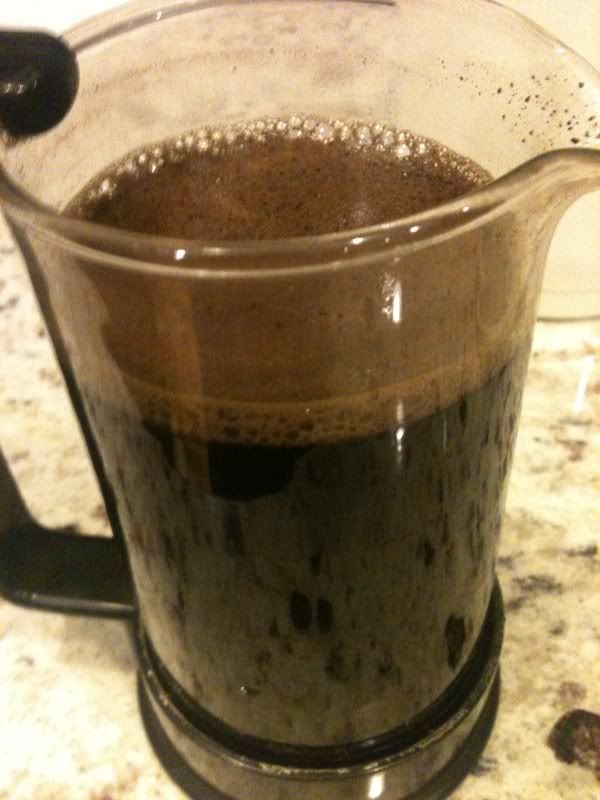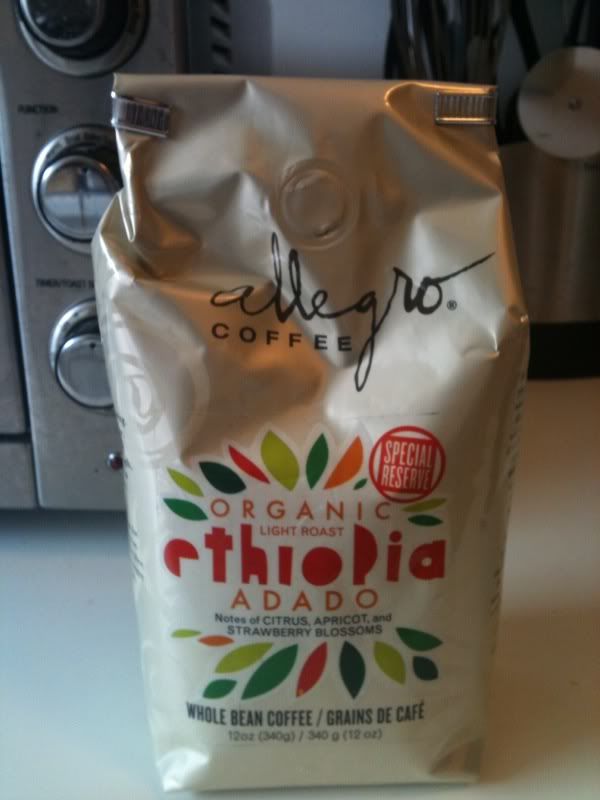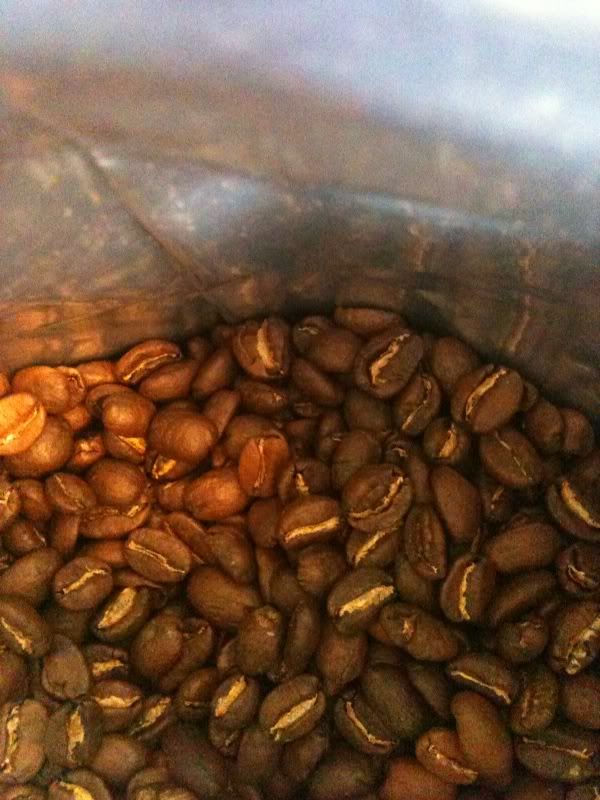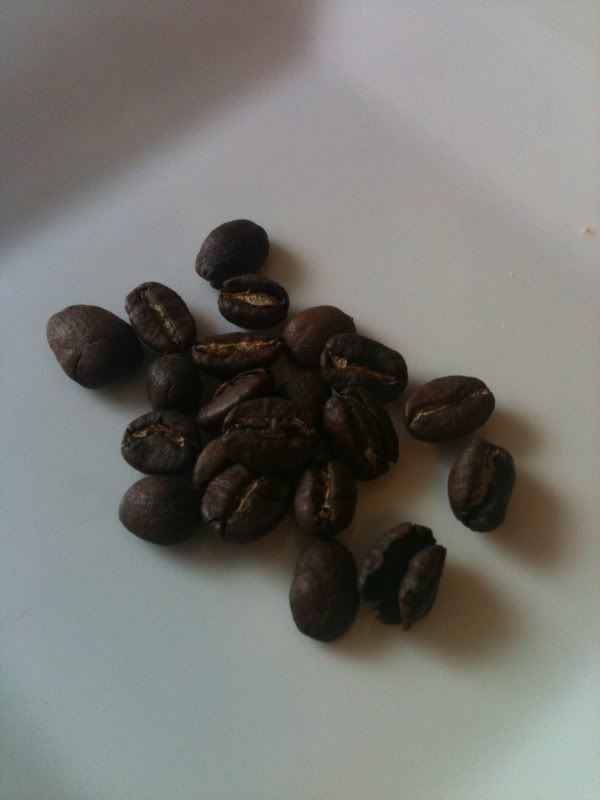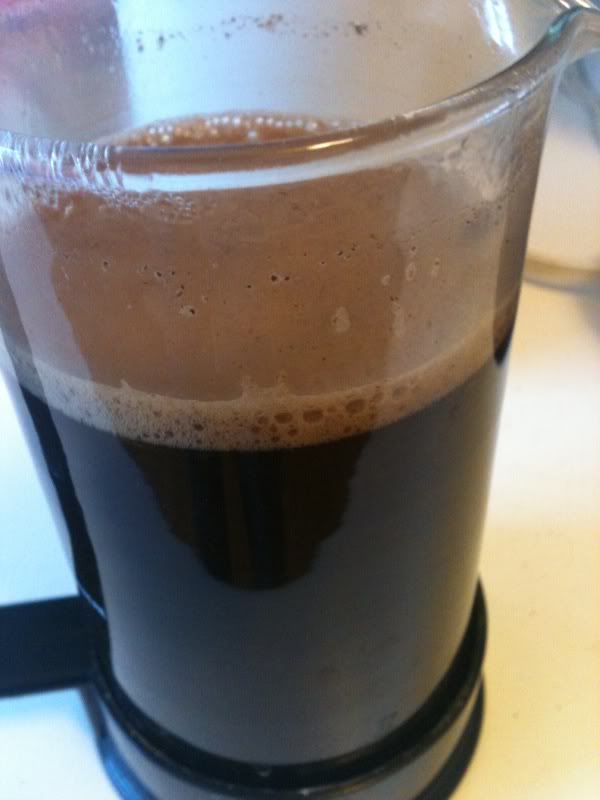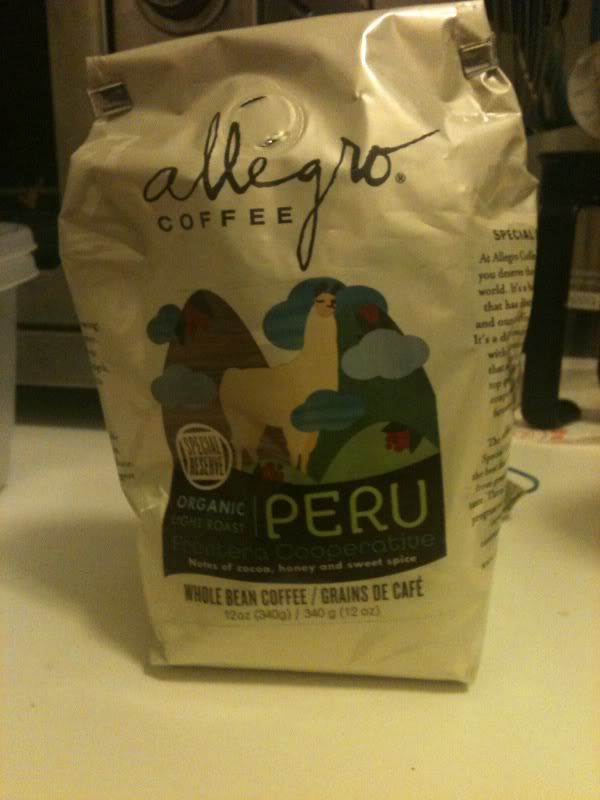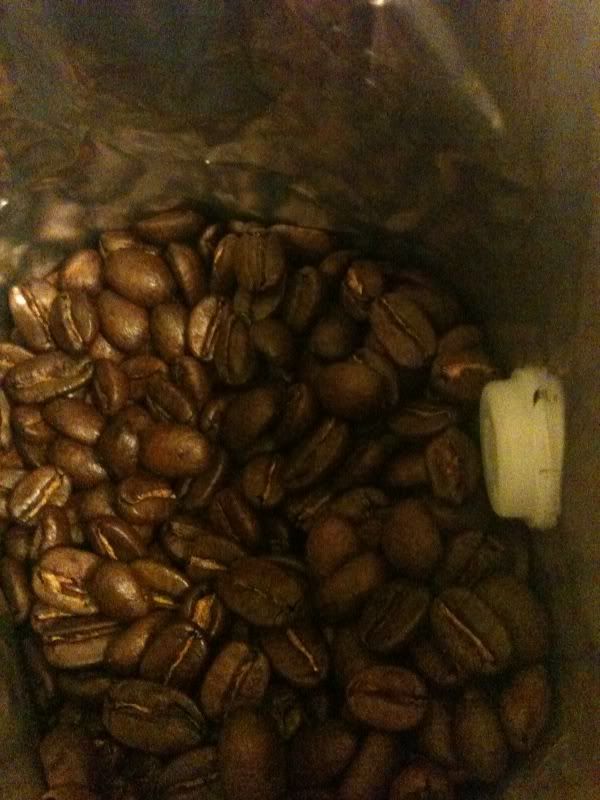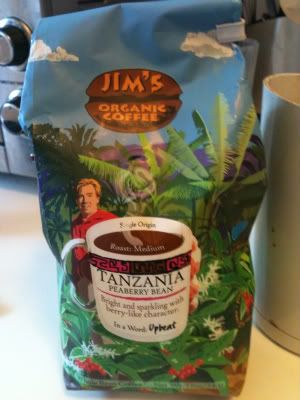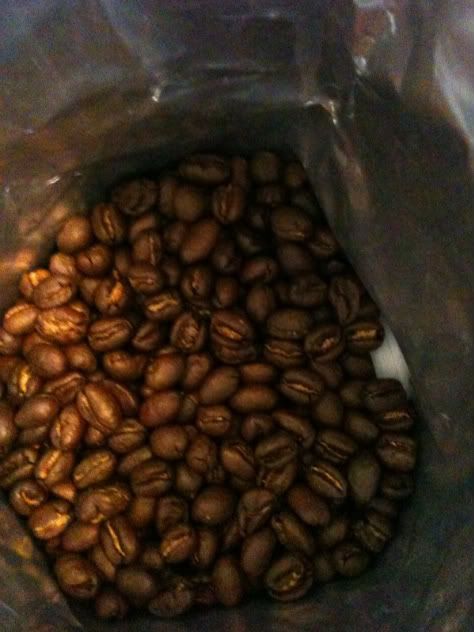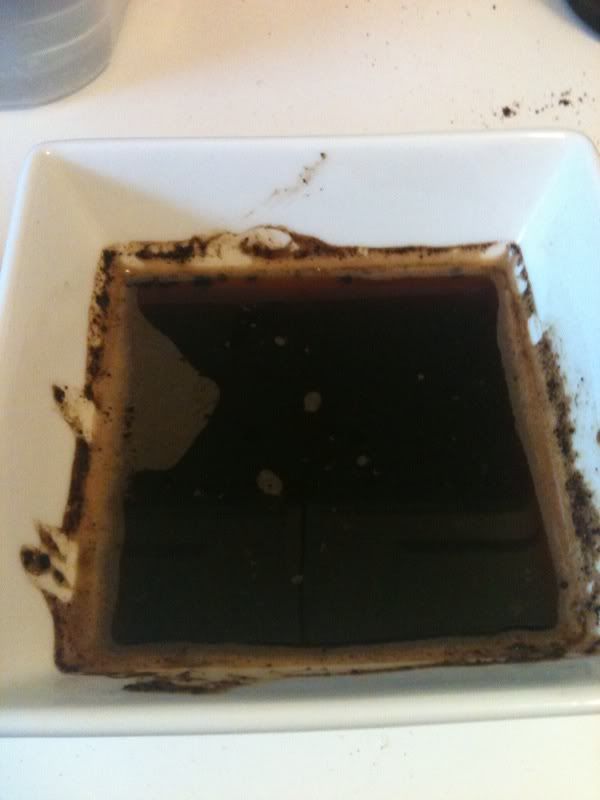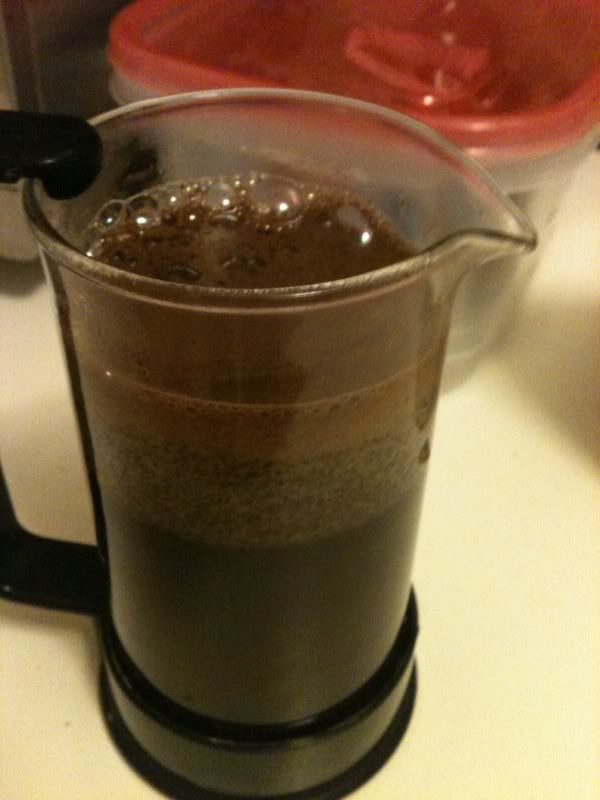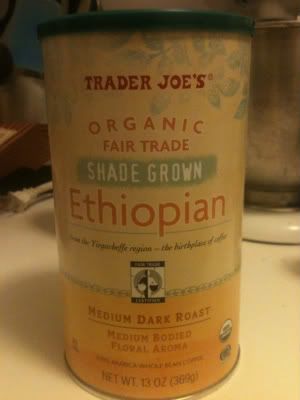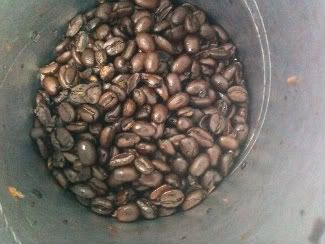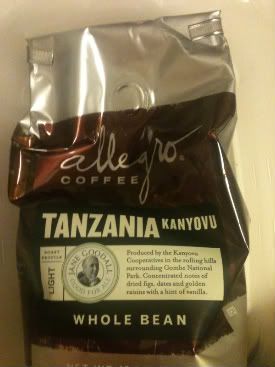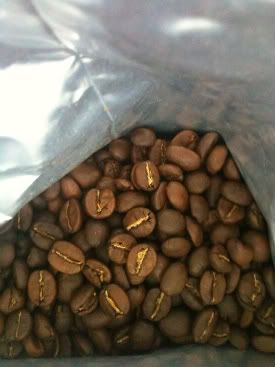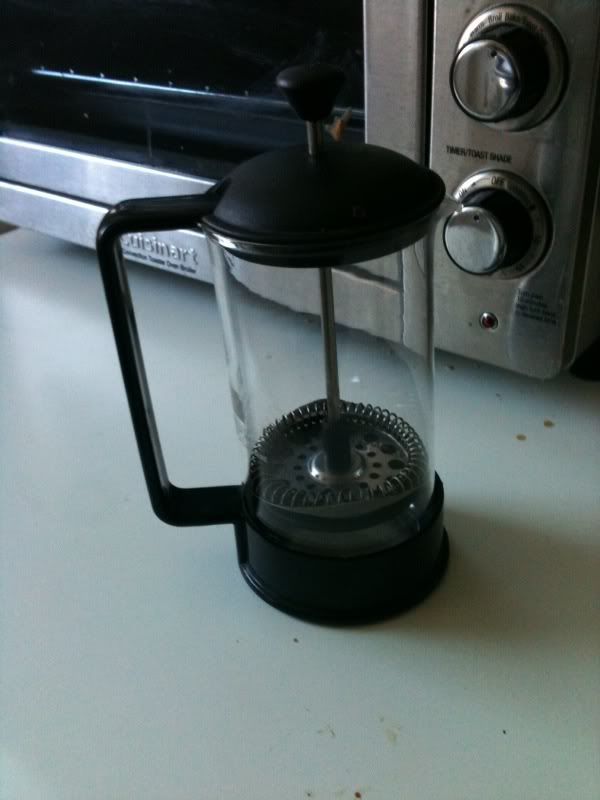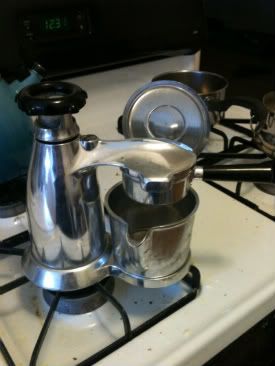The first coffee from Link's that I tried was Sulawesi, an Indonesian coffee. The beans are grown in mountainous altitudes and Sulawesi produces several different grades of quality. The most sought after beans come from Toraja but lower altitude farms produce beans as well. Link's Sulawesi is a Dark roasted low acidity Arabica coffee bean that has a very rich, earthy fragrance. The beans are medium sized.
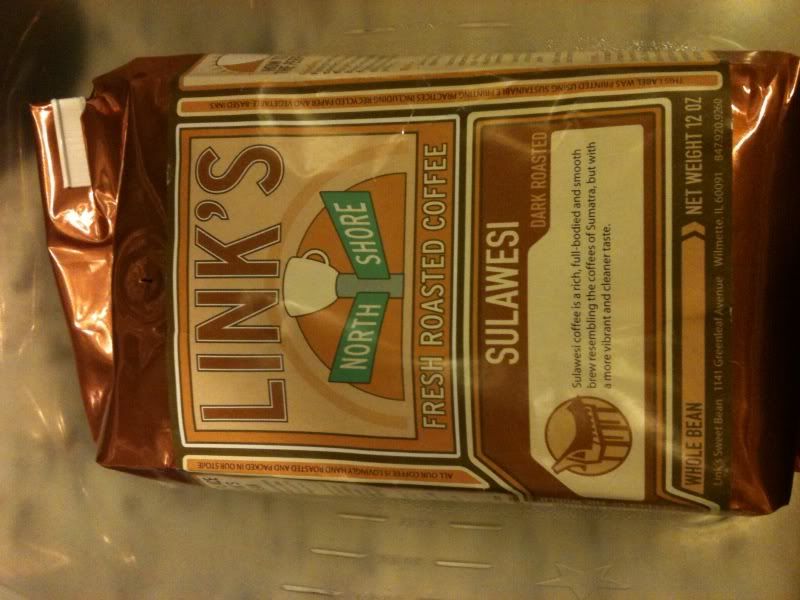
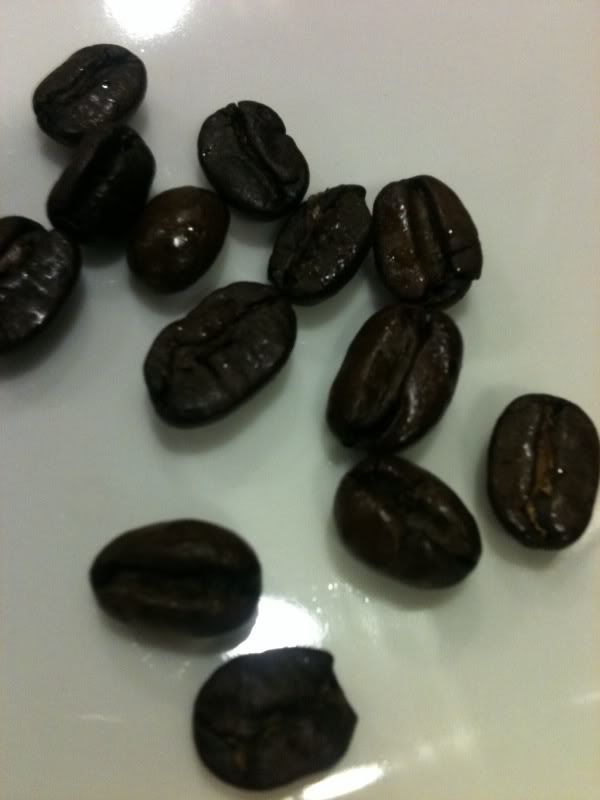
The beans were ground and the coffee was brewed in a french press. While steeping, the earthy, syrupy aroma came pouring out of the glass. As for taste, Link's started off on a strong foot. This coffee is excellent. There is no biting aftertaste, the flavor was earthy and very complex; I thought I could taste a bit of chocolate notes in it. The flavors lingered pleasantly after I was done with my beverage. Dark roasted coffees, to me, are either really good and rich in flavor or they are burnt and gross. Link's is the former. I would be curious to see how the flavors set up if Sulawesi was a medium roast.
There are news reports online that due to adverse climate conditions, the Sulawesi harvest this year has been smaller and as a result, the price of the beans has increased. My 12oz one way valve package was slightly more than $10.00 at Whole Foods which is on par if not slightly better in price than offerings from other roasters.
After using up all of my Sulawesi beans, I visited Link's Sweet Bean and purchased a larger sized 16 oz bag of Ethiopian Yirgacheffe. The beans are organic and carry fair trade certification. For those who have read my posts or talked directly with me about coffee, you know that I love African coffees. Link's Yirgacheffe absolutely blew me away with its flavor.
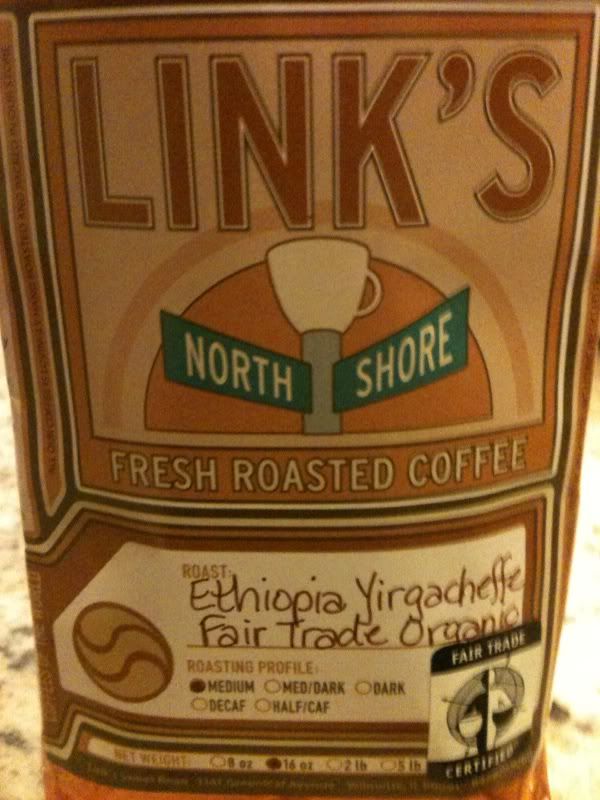
The beans are smaller in size which is the norm for Ethiopian. Unlike other Ethiopian and African coffees I have tried in the past, Link's medium roasts these beans and the flavors they extract are fantastic. What was most striking to me about Links' Yirgacheffe was the potent citrus aroma that leaps out of the bag when first opened and carries through into the brewed coffee.
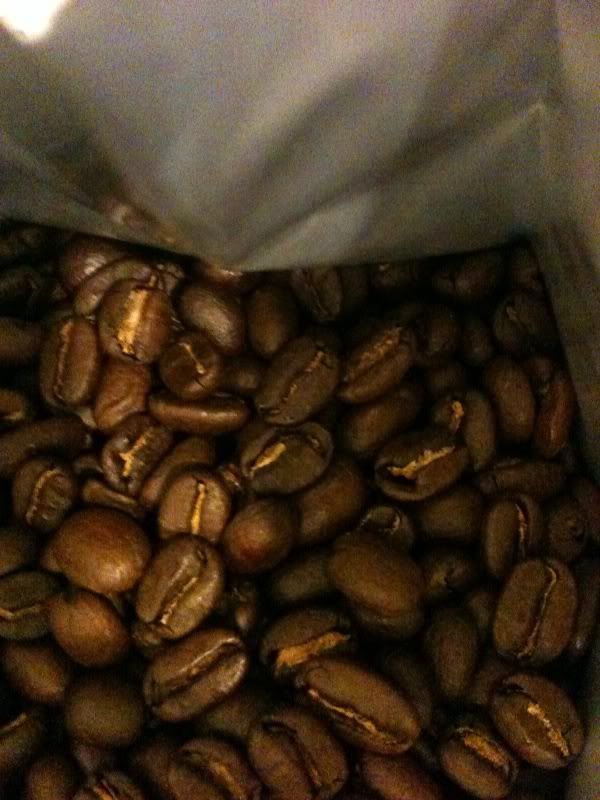
I brewed the coffee in my french press and in a Vesuviana. It was quite evident in the french press that a very think, syrupy and foamy crema forms. I'm starting to see this as an indicator of really high quality. Past coffees that failed to produce this, to me, tasted more dilute and less flavorful.
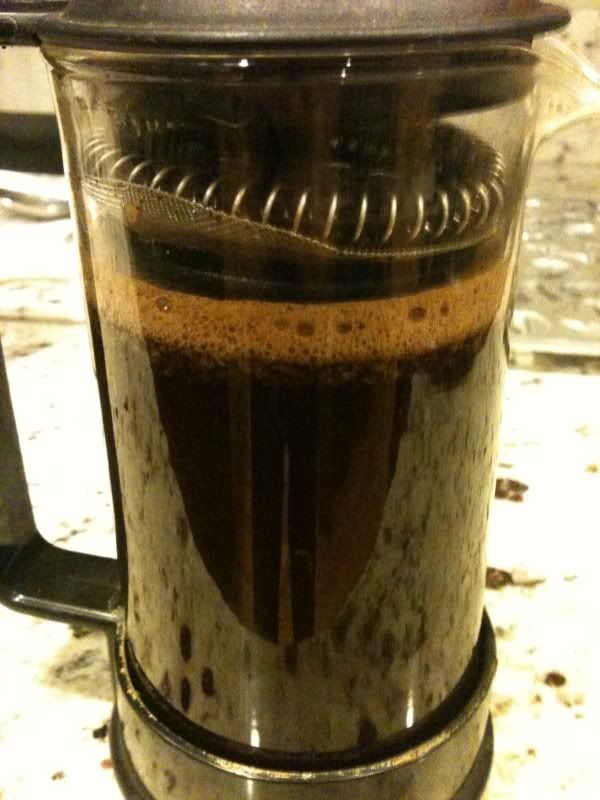
The coffee had powerful citrus notes and smooth acidity. It was an absolute treat to drink. Its great to discover another small local roaster who has really poured heart and soul into producing such a wonderful coffee for us caffeine hogs. I look forward to trying more in the future.
